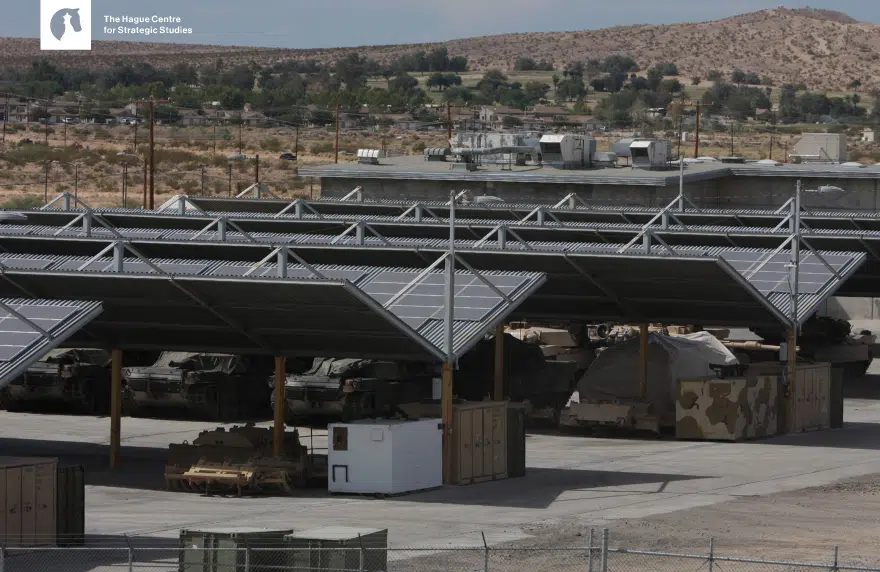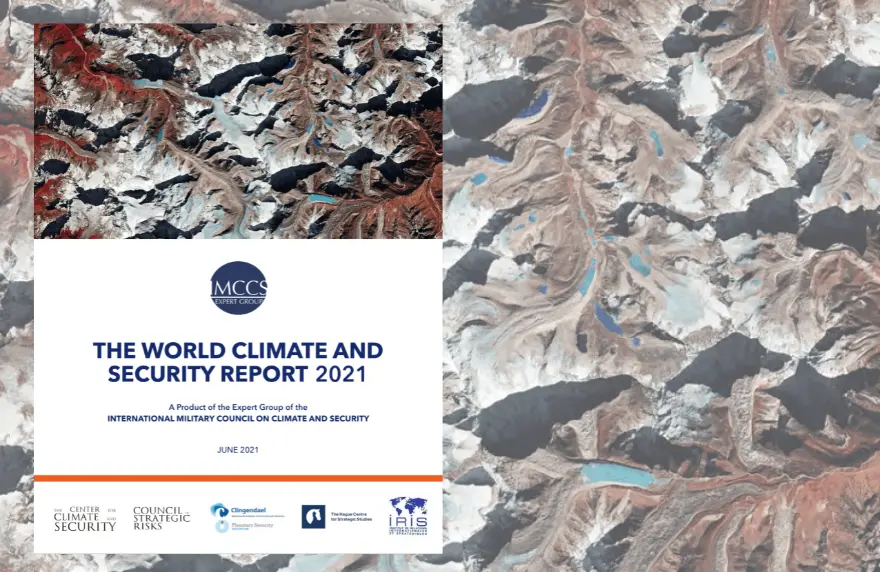The war in Ukraine in 2022 brought significant increases in NATO and European defence budgets and has taught us the importance of securing global supply lines. Until now, climate-related discussions rarely affected military force requirements.
Today, there is a growing recognition of the importance of climate proofing the armed forces as a precondition for operational effectiveness, rather than as a positive side effect. Energy security is now a priority area within NATO and European Union.
The climate security debate must shift to an understanding that (1) climate-related mitigation and adaptation measures in the military are urgent and inevitable; (2) existing dual-use innovative green technologies can bring important operational advantages to European armed forces; (3) massive investments into R&D for future capabilities are needed for climate-proofing the armed forces and enhancing their operational effectiveness; (4) and military procurement processes and training must be updated.
With a focus on existing technologies and policies, this report offers a starting point to discuss potential opportunities for armed forces to become more self-sufficient in their operations. It shows how innovative technologies can help militaries reduce their carbon and logistical footprints, while maintaining – or even strengthening – their operational effectiveness.
To successfully climate-proof armed forces, a “win-win” frame about the ecological and operational opportunities that new (disruptive) green technologies can provide for the Armed Forces needs to be sought for. Such technologies can help reduce strategic dependencies, operational costs and risks, while improving operational endurance, self-sufficiency and effectiveness.
This report finds that:
- There is a rapidly developing range of green innovations that can boost military self-sufficiency and provide incentives to regard ‘greening the force’ as an opportunity.
- NATO is a strong enabler that can support knowledge development on the climate-security nexus, the exchange of good practices, and the standardization of processes (including emissions measurement methods).
- At the national level, concrete targets for reducing military emissions should be integrated into Research & Development and Funding programs and the requirements for future capabilities in order to use the innovative strengths of the private sector. The creation of ‘living labs’ can be a strong tool to enable public-private cooperation on improving self-sufficiency.
- European defence industries should open their supply chains to start-ups and small and medium-sized enterprises that bring scalable innovative ideas and (disruptive) green technologies.
Authors: Irina Patrahau, Laura Birkman, Michel Rademaker, Tom Middendorp and Ella MacLaughlin; with contributions by Richard Nugee, Sharon Burke, Richard Brewin and Eric Engelbrecht.
Cover image source: Solar panels power tank battalion compound, WikiMedia Commons
The conclusions and recommendations presented in this paper are the result of independent research. Responsibility for the content rests with the authors and the authors alone. The research was made possible by a financial contribution from The Luxembourg Government to the Hague Centre for Strategic Studies.









